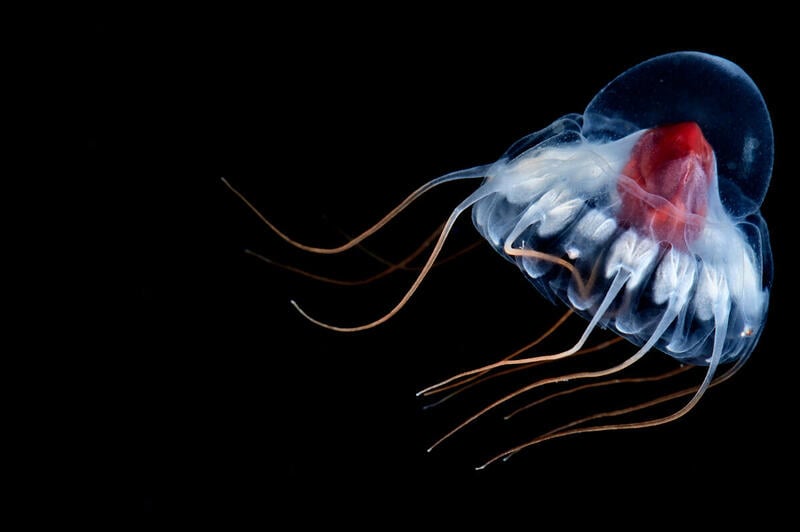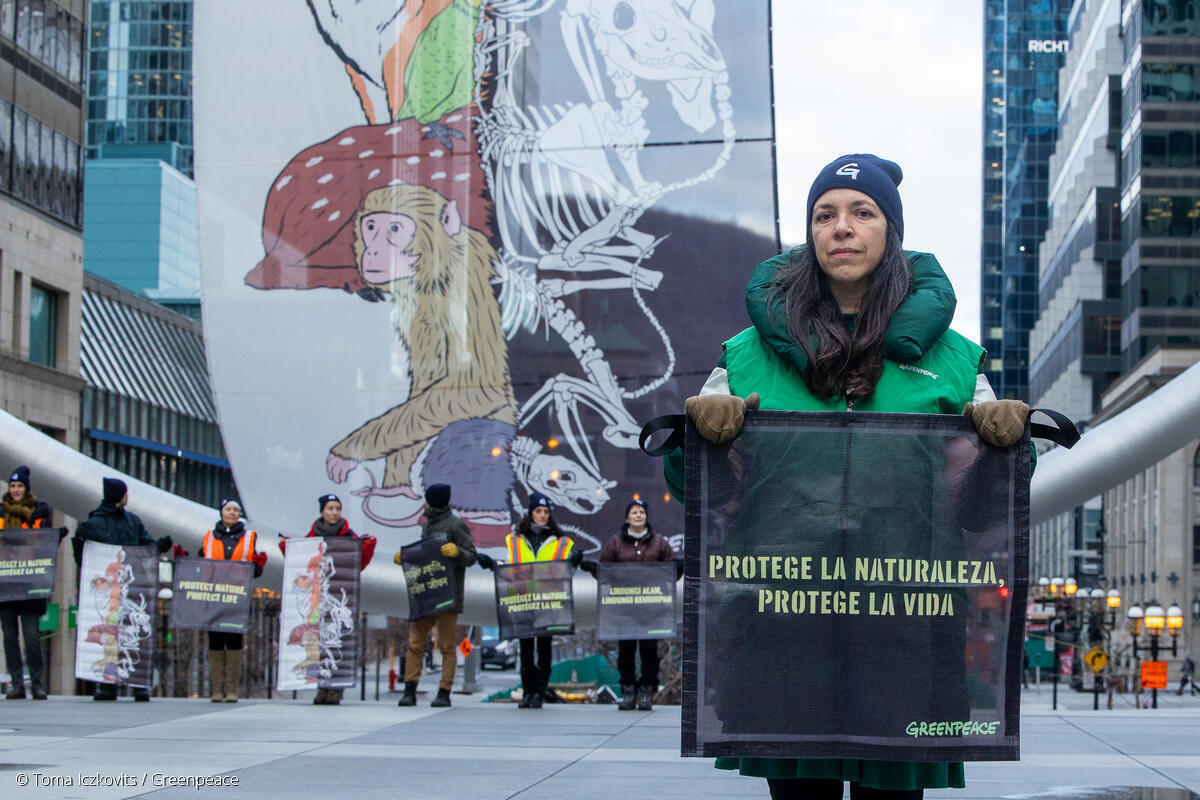Ottawa, Canada & Kingston, Jamaica — The International Seabed Authority (ISA) negotiations end today with deep sea mining companies failing to get an immediate green light to start mining the global seabed. Opposition to deep sea mining within the ISA is mounting with more than 20 governments across Europe, the Global South, and the Pacific calling for a pause.
“A majority of ISA Council countries — including Canada — did not yield to pressure from industry to fast-track rules for deep sea mining,” said Sarah King, head of Greenpeace Canada’s Oceans and Plastics campaigns. “Canada played an important role in keeping a moratorium on the ISA’s radar and will need to continue to hold firm if we hope to keep seafloor habitats and life off limits to irreversible destruction.”
Canada announced support for a moratorium on deep sea mining in international waters the first day of the ISA talks, and declared an “effective moratorium” on the practice in domestic waters earlier this year.
“The deep sea mining industry was getting ready to plunge its mechanical teeth into the ocean floor, but their bet backfired as they have seriously underestimated the importance of science and equity over a merely speculative and profit-driven venture. The cracks are appearing in what has to date been a fortress for industry interests as a result of increasing public awareness and mobilisation. It’s clear that most governments do not want their legacy to be greenlighting ocean destruction,” said Greenpeace International Oceans campaigner Louisa Casson.
Canadian-registered industry frontrunner The Metals Company saw its share price plummet as markets reacted to the news.[1] However, the ISA still failed to close a legal loophole that could allow TMC, and other mining companies, to start mining next year.
At the ISA Assembly this week, pro-mining nations reacted by attempting to silence the growing resistance to deep sea mining in the very place it’s up for negotiation. As of Friday morning, China is still opposing a proposal from Latin American, Pacific and European governments to make space for debate. Such attempts at restricting opposition to deep sea mining went beyond the negotiating table, as the ISA Secretariat restricted journalists and clamped down on peaceful protest during the meetings.
“In the Pacific, the ocean is dear to us. It informs our lives and who we are as a people. The spectre of deep-sea mining raises many concerns that remind us of the legacies our region has felt from other colonial extractive industries and the barbarous nuclear testing era. We call on world leaders to be better stewards of our ocean by joining the call for a moratorium,” said Joey Tau, campaigner with the Pacific Network on Globalisation (PANG) based in Suva, Fiji.
The calls to action by Indigenous Peoples are being joined by 37 financial institutions, over 750 scientists and the fishing industry — all calling for a halt.
ENDS
Notes to editors:
[1] $TMC traded at US $2.85 on 11 July, had dropped to $1.82 by Friday 21 July and following the ISA Council.
[2] A media backgrounder on deep sea mining is available here.
[3] Greenpeace Canada’s statement on Canada’s support for a moratorium on deep sea mining in global waters is here.
[4] Greenpeace Canada recently organized three activities spotlighting the risks of deep sea mining and the importance of Canada’s support for a moratorium, and calls from Pacific People for a halt to deep sea mining in Ottawa, Montreal and Toronto.
For more information, please contact:
Brandon Wei, Communications officer, Greenpeace Canada
[email protected]; +1 778 772-6138
Greenpeace International Press Desk: [email protected], +31 (0) 20 718 2470 (available 24 hours)

We need Canada to stop deep sea mining before it starts. Join the campaign now.
Take action


